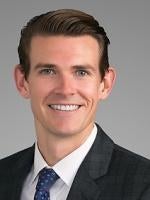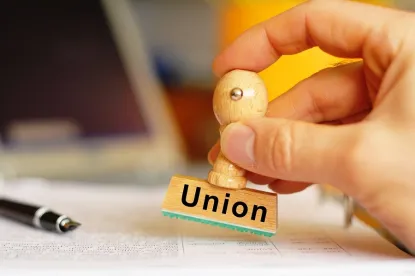In yet another case that impacts both union and non-union employers, the Republican-majority National Labor Relations Board (Board) overruled Obama-era precedent and substantially narrowed what is considered “protected concerted activities” by workers under the National Labor Relations Act (NLRA) in Alstate Maintenance, 367 NLRB No. 68 (January 11, 2019). In doing so, the Board expressly overturned WorldMark by Wyndham, 356 NLRB 765 (2011), which previously held that a single employee who gripes in a group setting is per se engaged in protected activities under the NLRA without regard to whether the employee is raising a group complaint or seeking to initiate, induce, or prepare for group action.
By way of background, Section 7 of the NLRA protects employees who engage in union activities. Section 7 also protects the right to engage in “concerted activities for the purpose of…mutual aid or protection”, otherwise known as “protected concerted activity” or “PCA”. PCA applies both to union and union-free settings. It also applies to statements made in the workplace, as well as statements made outside of the workplace, such as on Twitter, Facebook or Instagram.
While the “concerted” prong of PCA normally requires two or more employees to act together in some joint or cooperative fashion, the Board has found that a single employee’s conduct can be “concerted” if it is engaged in “with or on the authority of other employees, and not solely by and on behalf of the employee himself.” Meyers Industries (Meyers I), 268 NLRB 493, 496 (1984). Circumstances under which a single employee’s actions could be “concerted” include cases where individual employees “seek to initiate or to prepare for group action” or bring “truly group complaints to the attention of management.” Meyers Industries (Meyers II), 281 NLRB 882, 887 (1986). Notwithstanding the Meyers cases and even though the Board has never overruled Meyers, over the past decade the Obama-Board – in cases like WorldMark by Wyndham – deviated from Meyersand blurred the distinction between protected group action and unprotected individual action. Some common examples of PCA include:
- Discussing terms and conditions of employment with co-workers and outsiders including the media.
- Investigating and asking questions about terms and conditions of employment.
- Speaking out on behalf of co-workers.
- Soliciting others to join in group action, such as a class or collective action.
- Distributing materials relating to unionization or terms and conditions of employment.
- Complaining – to co-workers and even to outsiders – about the company, its managers/supervision and its working conditions.
- Engaging in a work stoppage, a refusal to work overtime or under unsafe working conditions and even engaging in a strike.
- Failing/refusing to keep non-business sensitive information confidential.
- Speaking out in favor of co-workers who have been treated adversely or unlawfully.
- Posting negative or disparaging tweets/messages about the Company’s terms and conditions of employment or its treatment of employees.
Facts
Alstate, which contracts to provide ground service at one of JFK International Airport’s terminals, fired a skycap after he declined to help move a traveling soccer team’s equipment until most of the work was done by baggage handlers inside the terminal. When asked by management to assist the team with their luggage, the charging party complained – in front of his co-workers – to his supervisor that the skycaps had performed a similar job the prior year for the soccer team but had received no tip. The supervisor told the charging party he would raise his concern with airline and airport management and subsequently did so. After raising the complaint, the skycap and his co-workers delayed but ultimately assisted the team with its luggage and equipment. Upon review of the incident, Alstate terminated the charging party because he was “indifferent to the customer” and made “verbal comments in front of other skycaps” complaining about the possibility of not getting a tip.
NLRB’s Holding
In Alstate, the Board’s majority held that the individual employee’s complaint to his manager about the possibility of not getting a tip was not PCA under the NLRA even though the complaint was made in front of other employees. Rather, the individual complaint was a “mere gripe,” not a “concerted” complaint made on behalf of, or to induce action by, his co-workers. The Board expressly overruled its 2011 decision in WorldMark by Wyndham, whereby a two-member Democrat-majority Board found that an individual employee’s comments made during a meeting about a new dress code policy were PCA because “an employee who protests publicly in a group setting is engaged in initiating group action.” The Board’s majority in Alstate rejected this per serule that complaints in group settings are PCA, reasoning that it “conflate[s] the concepts of group setting and group complaints.” The Board reiterated that simply making a complaint in the presence of others does not, standing alone, define the character of the activity, and that determining whether an employee has engaged in PCA requires consideration of all of the surrounding facts. The Board identified the following factors that tend to support an inference that an employee’s complaint is intended to induce group action and therefore “concerted”, including (1) the statement is made in an employee meeting called by the employer to announce a decision affecting a term or condition of employment; (2) the decision affects multiple employees attending the meeting; (3) the employee who speaks up in response to the announcement does so to protest or complain about the decision, not merely to ask questions about how the decision has been or will be implemented; (4) the speaker protests or complains about the decision’s effect on the work force generally or some portion of the work force, not solely him or herself; and (5) the meeting was the first opportunity to address the decision (i.e., there was no opportunity to discuss with co-workers beforehand). The Board’s majority explained that not all of these factors are required to support an inference that an employee is seeking to initiate or induce group action, and that the question remains “a factual one based on the totality of the circumstances.”
The Board additionally found that the employee’s complaint did not meet the second prong of the PCA analysis – i.e., it was not for “purpose of mutual aid or protection.” In doing so, the Board relied on the fact that his complaint was not about his employer’s tipping policy or practices, but rather the amount of a single tip received the year prior, which the Board noted, the employer had no control over. Accordingly, the Board found that the employee’s complaint was neither “concerted” nor had “mutual aid or protection” as its purpose.
What’s Next on the Chopping Block?
In its New Year’s ruling, the Board’s majority stated that its holding “begins the process of restoring the Meyers standard by overruling conflicting precedent that erroneously shields individual action and thereby undermines congressional intent to limit the protection afforded under the Act to concerted activity for the purpose of mutual aid or protection.” While not reaching the issue, the Board’s majority suggested in a footnote that a number of other cases arguably conflict with Meyersin which the Board has deemed certain subjects are “inherently” concerted and that they would be “interested in reconsidering this line of precedent in a future appropriate case.” See Trayco of S.C. Inc., 297 NLRB 630 (1990) (discussions about wages inherently concerted); Aroostook County Regional Ophthalmology Center, 317 NLRB 218 (1995) (discussion about work schedules inherently concerted); Hoodview Vending Co., 362 NLRB 690 (2015) (discussion about job security inherently concerted).
Takeaways
Alstate provides a detailed analysis of what individual activities constitute PCA under the current Republican-majority Board. Employers would be wise to consider these factors when determining whether an employee’s activities constitute PCA. The line between what constitutes PCA versus unprotected individual griping is not always clear. Accordingly, all employers should consider training supervisors and HR representatives to be able to distinguish between PCA and other unprotected conduct and not to discipline/retaliate against an employee for engaging in PCA. Moreover, it is essential that employers thoroughly investigate whether conduct that appears to be individual activity actually is objectively “concerted” and for the “purpose of mutual aid or protection” before taking action. In doing so, employers should exercise caution when investigating wrongdoing that may involve PCA as the Board takes the position that certain questions concerning PCA may constitute an unlawful interrogation under the NLRA if appropriate safeguards are no put in place to minimize the coercive impact of the investigatory interview. Employers should consult with experienced labor counsel before conducting said investigatory interviews.



 />i
/>i

